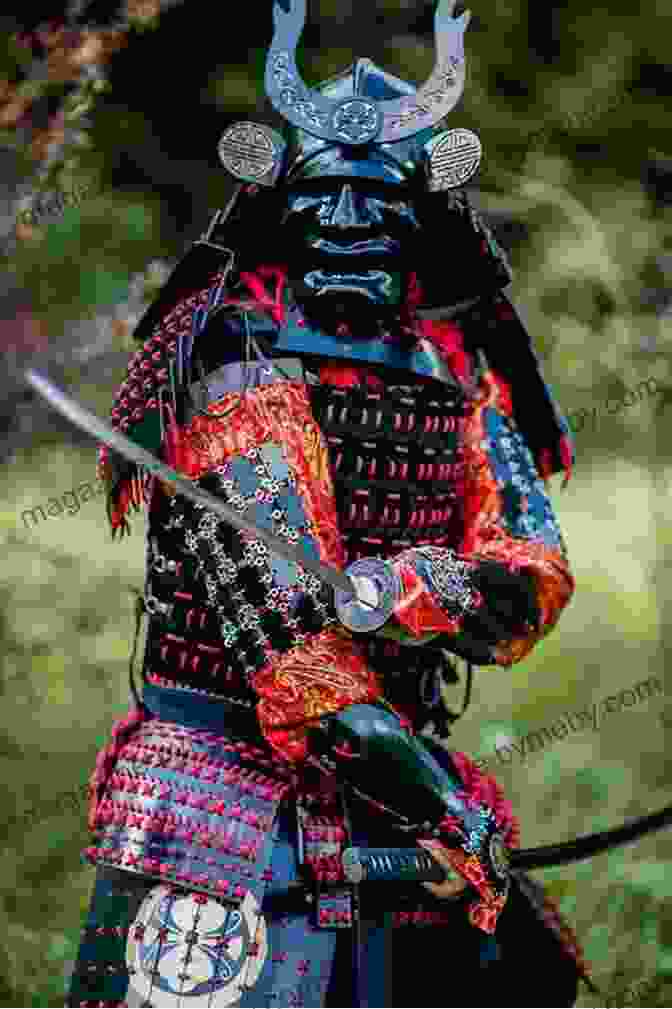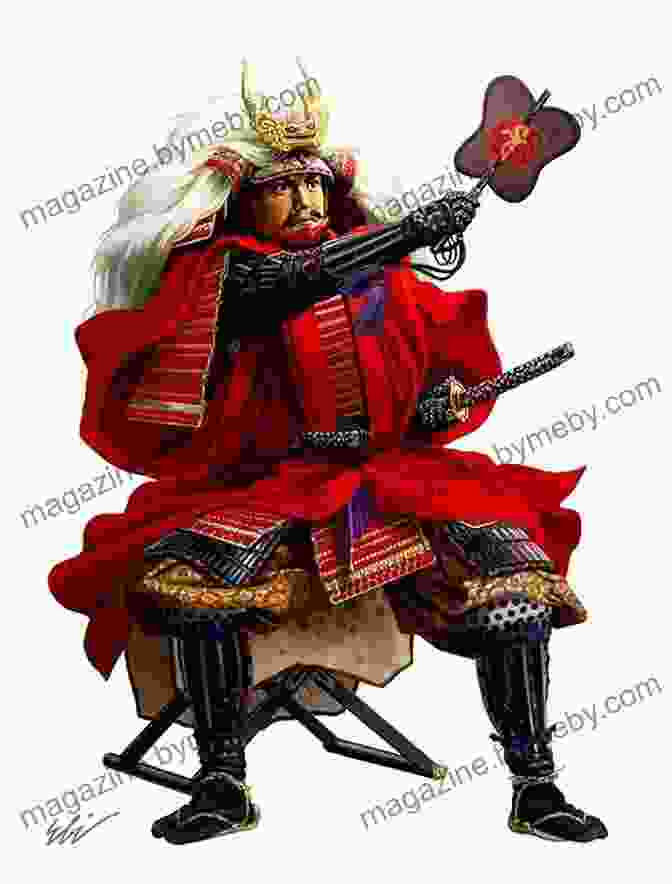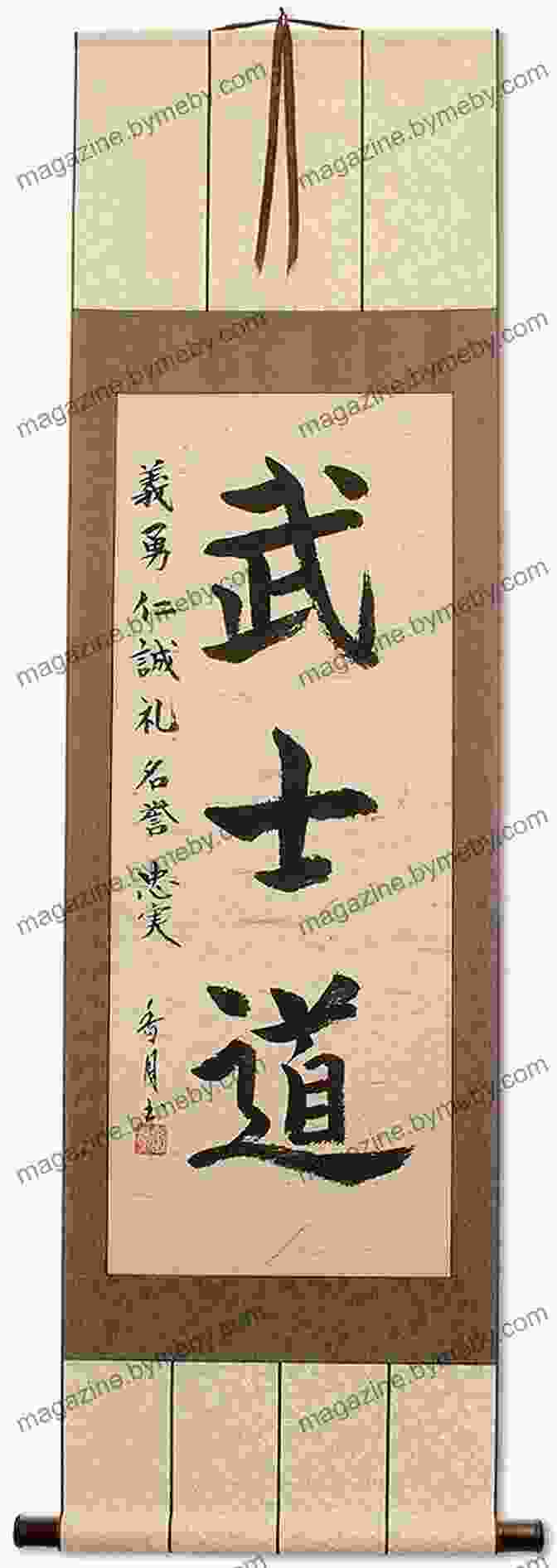Samurai, Shogun, and Zen: Unraveling the Bushido Code and the Way of the Warrior

The Enigmatic Samurai: Masters of Sword and Spirit

4.5 out of 5
| Language | : | English |
| File size | : | 7384 KB |
| Text-to-Speech | : | Enabled |
| Screen Reader | : | Supported |
| Enhanced typesetting | : | Enabled |
| Word Wise | : | Enabled |
| Print length | : | 306 pages |
In the tapestry of Japanese history, the samurai stand as iconic figures, shrouded in an aura of mystery and reverence. These elite warriors, sworn to protect their feudal lords, embodied a unique code of conduct known as Bushido. This code, deeply rooted in Zen Buddhism, emphasized loyalty, honor, courage, and self-sacrifice.
Samurai training began at a tender age, instilling in young warriors the physical prowess and mental discipline necessary for combat. They mastered the art of swordsmanship, archery, and horsemanship, honing their skills to a razor's edge.
Beyond their martial prowess, samurai were also expected to cultivate their spiritual and intellectual selves. They studied literature, philosophy, and the arts, seeking a balance between the yin and yang of their existence.
The Shogunate: A Legacy of Power and Control

The shogunate, established in the 12th century, represented the apex of samurai power. The shogun, the supreme military commander, held absolute authority over the nation, ruling in the name of the emperor.
The shogunate's influence extended beyond the battlefield, permeating all aspects of Japanese society. Shoguns enacted laws, administered justice, and patronized the arts and sciences, shaping the cultural and economic landscape of the nation.
While the shogunate brought stability and Free Download to a fragmented Japan, it also sowed the seeds of discontent. The constant power struggles and political machinations within the shogunate weakened its authority, ultimately leading to its downfall in the 19th century.
Zen Buddhism: The Spiritual Compass of the Samurai

Zen Buddhism, with its emphasis on meditation, simplicity, and self-reliance, profoundly influenced the samurai mindset. Samurai warriors found solace and guidance in the teachings of Zen, which offered a path to inner strength, clarity, and acceptance of the inevitable.
Through Zen practices such as zazen (seated meditation) and kendo (swordsmanship),samurai cultivated a deep understanding of their own minds and bodies. They learned to control their emotions, overcome fear, and embrace the concept of impermanence.
The influence of Zen can be seen in the samurai's unwavering loyalty to their lords, their willingness to face death with dignity, and their profound respect for nature.
The Bushido Code: A Tapestry of Honor and Sacrifice

Bushido, the unwritten code of honor that guided samurai conduct, was a complex tapestry of virtues and obligations. It demanded absolute loyalty to one's lord, unwavering courage in battle, and compassion towards the weak.
Samurai were expected to live in accordance with the principles of Bushido, both on and off the battlefield. They were to be honest, trustworthy, and respectful, even towards their adversaries.
Central to Bushido was the concept of seppuku, or ritual suicide. Seppuku was often performed to preserve honor or to atone for a perceived failure. It was considered a noble and dignified end for a samurai who had transgressed the principles of Bushido.
: A Legacy Enduring
The samurai, shogun, and Zen Buddhism have left an indelible mark on Japanese history and culture. The Bushido code continues to inspire modern-day leaders and practitioners of martial arts, while Zen Buddhism remains a guiding force for those seeking spiritual enlightenment.
Exploring the fascinating world of samurai, shogun, and Zen offers a glimpse into the heart of feudal Japan, revealing the values, beliefs, and practices that shaped a nation and continue to resonate with us today.
4.5 out of 5
| Language | : | English |
| File size | : | 7384 KB |
| Text-to-Speech | : | Enabled |
| Screen Reader | : | Supported |
| Enhanced typesetting | : | Enabled |
| Word Wise | : | Enabled |
| Print length | : | 306 pages |
Do you want to contribute by writing guest posts on this blog?
Please contact us and send us a resume of previous articles that you have written.
 Book
Book Novel
Novel Page
Page Chapter
Chapter Text
Text Story
Story Genre
Genre Reader
Reader Library
Library Paperback
Paperback E-book
E-book Magazine
Magazine Newspaper
Newspaper Paragraph
Paragraph Sentence
Sentence Bookmark
Bookmark Shelf
Shelf Glossary
Glossary Bibliography
Bibliography Foreword
Foreword Preface
Preface Synopsis
Synopsis Annotation
Annotation Footnote
Footnote Manuscript
Manuscript Scroll
Scroll Codex
Codex Tome
Tome Bestseller
Bestseller Classics
Classics Library card
Library card Narrative
Narrative Biography
Biography Autobiography
Autobiography Memoir
Memoir Reference
Reference Encyclopedia
Encyclopedia Jose Antonio Vargas
Jose Antonio Vargas John S Ahlquist
John S Ahlquist Jonathan Pelson
Jonathan Pelson Lindsey Schlessinger
Lindsey Schlessinger Joy Totah Hilden
Joy Totah Hilden Porter Fox
Porter Fox Joshua Samuel Brown
Joshua Samuel Brown Yuta Aoki
Yuta Aoki Kimiko Kitani
Kimiko Kitani Joy Jones
Joy Jones Rosa Malango
Rosa Malango Joshua Clark
Joshua Clark John Sudol
John Sudol Martin Toms
Martin Toms Jon Cryer
Jon Cryer Jon Steel
Jon Steel Rich Fettke
Rich Fettke Robert Calderisi
Robert Calderisi Tristan Higbee
Tristan Higbee Jozef Nauta
Jozef Nauta
Light bulbAdvertise smarter! Our strategic ad space ensures maximum exposure. Reserve your spot today!

 Banana YoshimotoLock In: A Captivating Novel of the Near Future that Explores Consciousness...
Banana YoshimotoLock In: A Captivating Novel of the Near Future that Explores Consciousness...
 Darnell MitchellHunger of Memory: A Riveting Exploration of Identity, Language, and the...
Darnell MitchellHunger of Memory: A Riveting Exploration of Identity, Language, and the...
 Will WardUnravel the Dark Enigma: A Thrilling Journey into Murder List Buchanan Renard...
Will WardUnravel the Dark Enigma: A Thrilling Journey into Murder List Buchanan Renard... Boris PasternakFollow ·18.3k
Boris PasternakFollow ·18.3k Dustin RichardsonFollow ·7.8k
Dustin RichardsonFollow ·7.8k Timothy WardFollow ·5.2k
Timothy WardFollow ·5.2k Enrique BlairFollow ·17.6k
Enrique BlairFollow ·17.6k Rex HayesFollow ·17.6k
Rex HayesFollow ·17.6k Angelo WardFollow ·10.2k
Angelo WardFollow ·10.2k Dakota PowellFollow ·9.8k
Dakota PowellFollow ·9.8k Stephen KingFollow ·3.7k
Stephen KingFollow ·3.7k

 Efrain Powell
Efrain PowellCritical Thinker's Guide to Media Bias and Political...
In a world awash with information, it has...

 Aubrey Blair
Aubrey BlairMurder Is Bad Manners: An Unforgettable English Mystery
Prepare yourself for a captivating literary...

 Luke Blair
Luke BlairDon't Settle For Safe: Embrace Adventure and Live a Life...
<p>In this inspiring and...

 W.H. Auden
W.H. AudenRoblox Codes Dragon Adventures King Legacy All Combat...
Roblox is a massively popular online game...
4.5 out of 5
| Language | : | English |
| File size | : | 7384 KB |
| Text-to-Speech | : | Enabled |
| Screen Reader | : | Supported |
| Enhanced typesetting | : | Enabled |
| Word Wise | : | Enabled |
| Print length | : | 306 pages |










